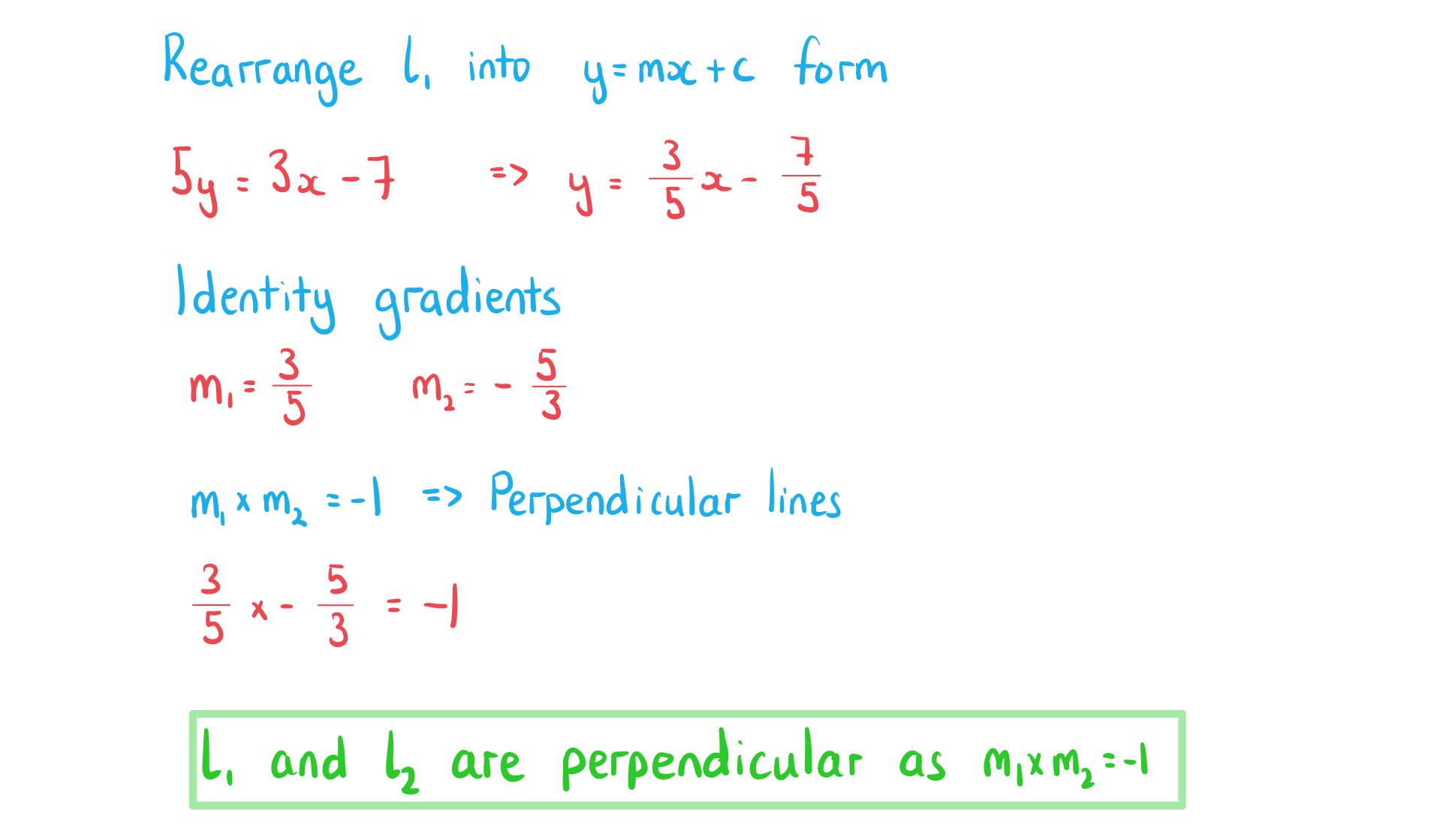Equations of a Straight Line
How do I find the gradient of a straight line?
- Find two points that the line passes through with coordinates (x1, y1) and (x2, y2)
- The gradient between these two points is calculated by
-
- This is given in the formula booklet
- The gradient of a straight line measures its slope
- A line with gradient 1 will go up 1 unit for every unit it goes to the right
- A line with gradient -2 will go down two units for every unit it goes to the right
What are the equations of a straight line?
- This is the gradient-intercept form
- It clearly shows the gradient m and the y-intercept (0, c)
-
- This is the point-gradient form
- It clearly shows the gradient m and a point on the line (x1, y1)
- This is the general form
- You can quickly get the x-intercept
and y-intercept
How do I find an equation of a straight line?
- You will need the gradient
- If you are given two points then first find the gradient
- It is easiest to start with the point-gradient form
- then rearrange into whatever form is required
- multiplying both sides by any denominators will get rid of fractions
- then rearrange into whatever form is required
- You can check your answer by using your GDC
- Graph your answer and check it goes through the point(s)
- If you have two points then you can enter these in the statistics mode and find the regression line
Exam Tip
- A sketch of the graph of the straight line(s) can be helpful, even if not demanded by the question
- Use your GDC to plot them
- Ensure you state equations of straight lines in the format required
- Usually
or
- Check whether coefficients need to be integers (they usually are for
)
- Usually
Worked Example
The line passes through the points
and
.
Find the equation of , giving your answer in the form
where
and
are integers to be found.

Parallel Lines
How are the equations of parallel lines connected?
- Parallel lines are always equidistant meaning they never intersect
- Parallel lines have the same gradient
- If the gradient of line l1 is m1 and gradient of line l2 is m2 then...
- If the gradient of line l1 is m1 and gradient of line l2 is m2 then...
- To determine if two lines are parallel:
- Rearrange into the gradient-intercept form
- Compare the coefficients of
- If they are equal then the lines are parallel
- Rearrange into the gradient-intercept form

Worked Example
The line passes through the point
and is parallel to the line with equation
.
Find the equation of , giving your answer in the form
.

Perpendicular Lines
How are the equations of perpendicular lines connected?
- Perpendicular lines intersect at right angles
- The gradients of two perpendicular lines are negative reciprocals
- If the gradient of line l1 is m1 and gradient of line l2 is m2 then...
- If the gradient of line l1 is m1 and gradient of line l2 is m2 then...
- To determine if two lines are perpendicular:
- Rearrange into the gradient-intercept form
- Compare the coefficients of
- If their product is -1 then they are perpendicular
- Rearrange into the gradient-intercept form
- Be careful with horizontal and vertical lines
and
are perpendicular where p and q are constants

Worked Example
The line is given by the equation
.
The line is given by the equation
.
Determine whether and
are perpendicular. Give a reason for your answer.

